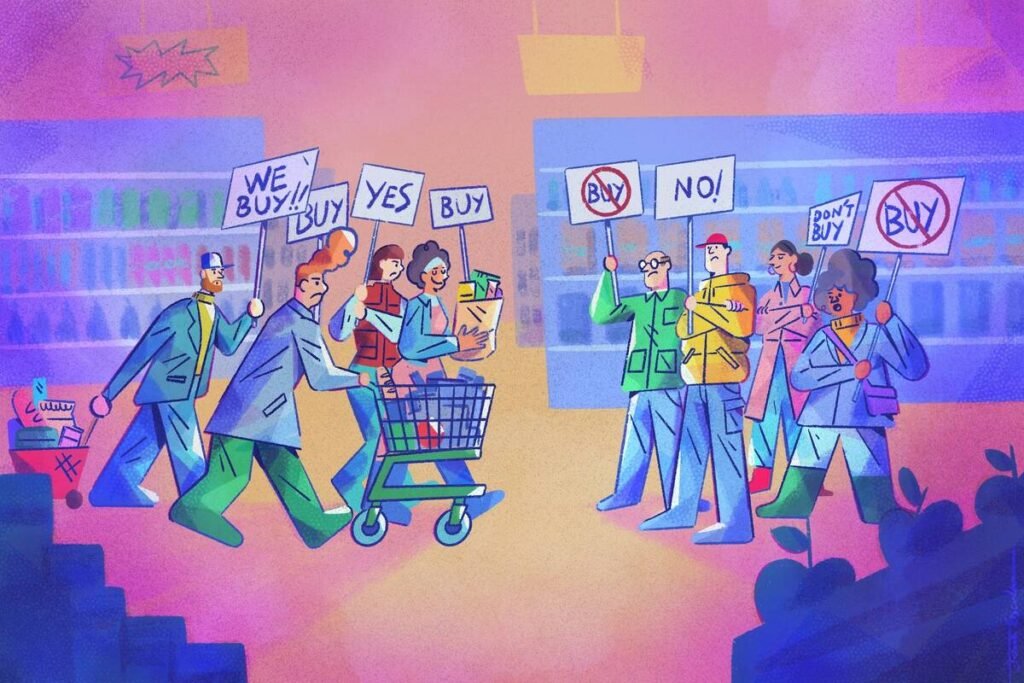
The recent uproar surrounding Tyson Foods Boycott, a multinational food conglomerate, unveils a complex tapestry of economic, legal, and social issues that intersect with corporate responsibility and immigration policies. The company’s decision to close a pork processing plant in Perry, Iowa, terminating the employment of 1,200 workers after 61 years of operation, has ignited a firestorm of criticism. This event is not isolated; it mirrors a broader trend of industrial closures across the United States, impacting local economies and livelihoods.
Get a Wendy’s Gift Card! CLICK HERE!
Tyson Foods Boycott Gets Fuel for its Fire
Adding fuel to the fire, Tyson Foods’ initiative to hire over 40,000 migrants and asylum-seekers has spurred calls for a boycott. This move, juxtaposed against the backdrop of American job losses, raises significant questions about the balance between corporate strategies and their implications on the domestic workforce and community well-being. Accordingly, Critics accuse Tyson of prioritizing immigrant labor over American workers. The company maintains that its hiring practices are legal and part of a commitment to support legal employment and combat unlawful activities.
Get Pizza from your favorites with a prepaid Visa card! Click Here!
Tyson Facing Legal Scrutiny
America First Legal suggests that Tyson’s actions may infringe upon laws designed to protect American workers, highlighting the legal entanglements that can emerge from such corporate decisions. The discourse surrounding Tyson Foods encapsulates broader debates on immigration law, corporate responsibility, and its ramifications on the U.S. economy.
Get a Wendy’s Gift Card! CLICK HERE!

Controversy From Many Fronts
A closer look at the controversy, as reported by Newsweek, reveals Tyson’s announcement to offer comprehensive benefits to migrants, including wages, legal aid, and temporary housing. This announcement, however, has been met with backlash. Many view the company’s strategy as a direct affront to American labor. Tyson Foods has defended its position, asserting that all its employees are legally authorized to work in the U.S., yet the public outcry persists.
Get Pizza from your favorites with a prepaid Visa card! Click Here!
Will the Tyson Foods Boycott Succeed
This situation raises pivotal questions about the role of corporations in shaping immigration policy, employment practices, and the economic fabric of local communities. The juxtaposition of plant closures against the backdrop of hiring migrants spotlights the complex dynamics between global business strategies and local economic realities.
Cracks Forming in the Socio/Economic Landscape
The unfolding story of Tyson Foods serves as a microcosm of larger economic and social issues confronting the United States. It underscores the need for a nuanced understanding of corporate practices, immigration policies, and their collective impact on American society. As the debate continues, the responses from Tyson Foods and the broader public will likely influence future discussions on employment practices, immigration, and corporate responsibility in America.
How Does this Relate to the Economy and Investments
Continuing reports of weak consumer spending lead to more and more of these decisions from the large mega-corporations. As the economy heads further towards recession, or deeper if you are in the camp that we are already in, corporations will become more “Lean”. Accordingly, this will lead to layoffs and policy changes and maybe some further price changes in the near term. So my opinion is that you will see more adjusting guidance and broader sell-offs as we progress into the year. So i would plan your investments and trading plans accordingly.
References:
- “Tyson Foods Boycotted as It Sacks 1,300 Staff at Iowa Pork Plant and Offers Job and Lawyer Packages in Bid to Hire 42,000 Asylum Seekers in New York.” MSN.
- “Tyson Foods Faces Boycott After Report Claims Company Hires Migrants.” MSN.
